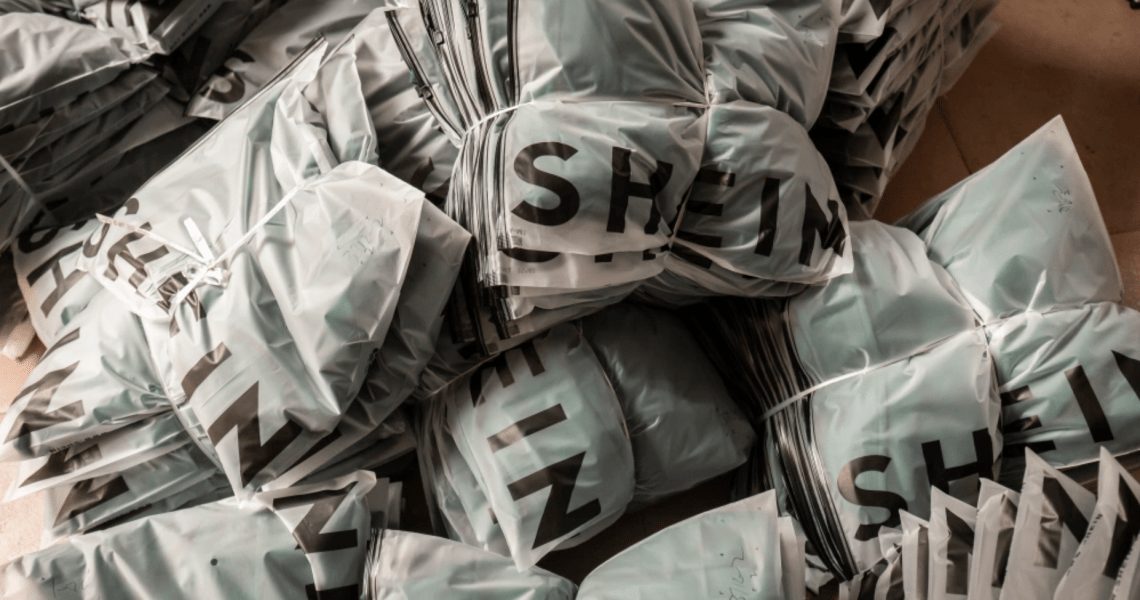Shein is reportedly filing for an IPO sometime this year, even as it faces opposition from U.S. lawmakers. Meanwhile, Nike’s return to wholesale hasn’t been the boost the brand was hoping for, and Tiffany’s massive flagship store had a close call with an electrical fire. Don’t forget to subscribe to the Glossy Podcast for interviews with fashion industry leaders and Week in Review episodes, and the Glossy Beauty Podcast for interviews from the beauty industry. –Danny Parisi, sr. fashion reporter
Shein is in talks about U.S. IPO amid opposition and public criticism
It was an inauspicious week for Shein to be in talks about a U.S. IPO. The fast-fashion giant was reported to be working with at least three investment banks regarding a future IPO. That was just days after it faced accusations from U.S. lawmakers that it was skirting tariff rules due to the low price of its goods.
Also last week, Shein was the subject of a PR disaster after it invited a number of American influencers to tour one of its factories. The resulting videos were widely criticized for being an obviously whitewashed look at a company that’s been credibly accused of having poor working conditions and environmentally harmful practices.
I went into detail on the Shein influencer trip with Glossy’s editor-in-chief Jill Manoff last week on the Week in Review podcast. Check out the most recent episode for our thoughts on why that trip backfired on both Shein and the influencers involved.
Valued at over $60 billion, an IPO would make Shein one of the most valuable publicly traded companies on the market.
But Shein would certainly face more opposition before that happens. Back in May, two dozen U.S. representatives asked the SEC to audit Shein before any potential IPO over the possible use of forced labor in the production of the thousands of new styles the company creates each day.
Ad position: web_incontent_pos1
Nike’s wholesale partners are dragging it down
Nike’s relationship with wholesale and direct sales has wavered over the years. In 2021, the brand made the decision to start shifting more resources to DTC sales and pull back on its partnerships with wholesalers, even long-time partners like Foot Locker.
But in the last year, the company slowly started to back down on that move. In December, the company struck multiple new partnerships and spoke publicly about the importance of wholesale relationships to its ongoing business.
But now, those same relationships are becoming the drag that Nike may have feared they’d become back in 2021. In the company’s earnings call, it cited a decline in spending on Nike products from customers at retailers like Foot Locker, citing inflation as part of the reason for a lower-than-expected revenue report.
Of course, lower-than-expected for Nike still comes out to a lot more money than most brands can claim, with its revenue nearing $13 billion for the quarter. Nike may decide that those wholesale partners are only a temporary drag and stick by them, rather than reverting back to its DTC-focused strategy of a few years ago.
Ad position: web_incontent_pos2
Tiffany’s massive flagship store very nearly met its end
Only two months after Tiffany & Co. opened a new flagship store in Manhattan, the store caught on fire. Plumes of black smoke spewed out of the store’s windows on Thursday morning, but by the afternoon, the fire was out and the damage was reportedly minimal.
Tiffany reopened the store on Friday, telling WWD that an electrical fire had started on the periphery of the building and that the interior and products were undamaged. No employees or customers were hurt.
The now-LVMH-owned Tiffany has been putting a lot of resources into its rebranding efforts in the year since its acquisition, including launching in celebrity ambassadors, hip collaborators and irreverent marketing campaigns. The 110,000-square-foot store is the crown jewel of the new Tiffany and one of the largest single-brand luxury stores in the world.




